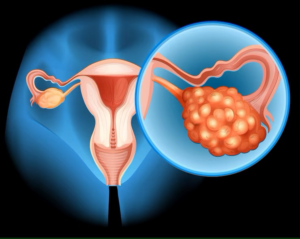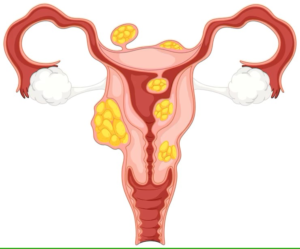Mon - Fri 8.30am - 4.30pm
Sat - Sun - Closed
07 3505 6425
22 Corrie St
Chermside QLD 4032
Sat - Sun - Closed
Chermside QLD 4032
PCOS can develop in women and individuals assigned female at birth (AFAB) anytime post-puberty.
Diagnosis commonly occurs in one's 20s or 30s, particularly when attempting pregnancy.
The likelihood of developing PCOS is higher for those with obesity or a family history of PCOS.
However, it is possible to have PCOS without evident signs. Numerous individuals may be unaware of the condition until they encounter difficulties conceiving or inexplicable weight gain. Additionally, some may have a mild form of PCOS, where the symptoms are not pronounced enough to be readily noticeable.
While there is no permanent cure for PCOS, this disorder can be tackled with simple lifestyle modifications and medical management. Abstaining from smoking, a healthy diet, weight control, and regular exercise can all help you treat PCOS. You can also be prescribed by doctors to take medication to balance out your hormones.
In extreme cases of this disorder, your doctor may also suggest that you undergo surgery. Some of the commonly prescribed procedures include:
You should consult 1st with a gynecologist (expert in the female reproductive system) along with an endocrinologist for hormonal imbalance or an infertility specialist if planning pregnancy. A single test cannot diagnose PCOS. Your doctor will talk to you about your medical history, conduct a physical exam, and run an ultrasound and blood tests to pinpoint the disorder. As symptoms tend to vary from case to case, it is essential that you take the help of a PCOS specialist, who will be able to thoroughly diagnose your case before recommending any treatment.
Dr Kanakamani Jeyaraman MBBS, MD, DM (Endo), DNB (Endo), FRACP (Endo)
Evaluate the range of treatment options offered by the specialist, including lifestyle modifications, medications, and fertility treatments if needed. In Chermside Specialists, we collaborate with a team of healthcare professionals, such as dietitians, psychologists, and other specialists, who can provide a more holistic approach to PCOS management. We also offer affordable pricing for every treatment, and we cooperate with the most popular insurance company.
Images


If you have any questions or concerns, Please talk to us at Chermside Specialists (22 Corrie St
Chermside QLD 4032) on 07 3505 6425 to find out more.
Various Specialists Under One Roof. We are a specialist centre offering a comprehensive range of adult and paediatric health care services. We ensure our patients and families have access to high quality treatment.